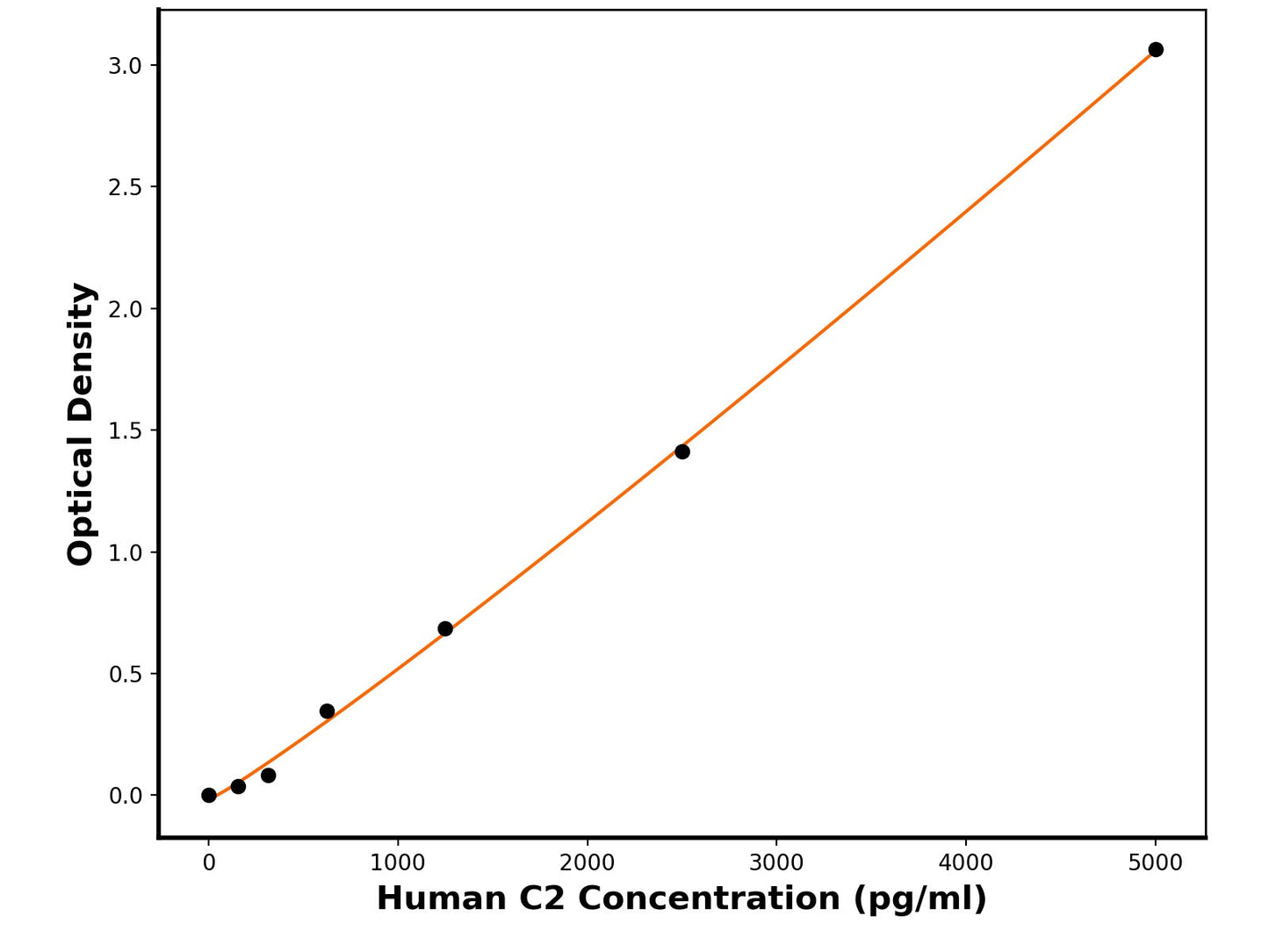1
/
of
1
Human Complement C2 (C2) ELISA Kit
Human Complement C2 (C2) ELISA Kit
This ELISA kit is designed to detect Human Complement C2 (Human C2). The assay plate has been pre-coated with mouse anti-Human C2 monoclonal antibody. When the sample containing C2 is added to the plate, it binds to the antibodies coated on the wells. Then, a horseradish peroxidase conjugated mouse anti-Human C2 Antibody is added to the wells and binds to C2 in the sample. After washing the wells, substrate solutions are added, and the color intensity is directly proportional to the amount of Human C2 present. The reaction is stopped by adding an acidic stop solution, and the absorbance is measured at 450 nm.
Catalog No:
BPE032
Regular price
$624.00 USD
Regular price
$480.00 USD
Sale price
$624.00 USD
Unit price
/
per
2 weeks
Couldn't load pickup availability
Product Details
Species Reactivity
Human
Sensitivity
17.72 pg/mL
Detection Range
78.13-5000 pg/mL
Sample Type
Serum, plasma, cell culture supernates
Incubation(s)
3.5 hour(s)
Research Areas
Immunology
Background
Complement component C2 is part of the classical complement pathway which plays a major role in innate immunity against infection. C2 is a glycoprotein synthesized in liver hepatocytes and several other cell types in extrahepatic tissues. This pathway is triggered by a multimolecular complex C1, and subsequently the single-chain form of C2 is cleaved into two chains referred to C2a and C2b by activated C1. The second component of complement (C2) is a multi-domain serine protease that provides catalytic activity for the C3 and C5 convertases of the classical and lectin pathways of human complement. C4b and C2 was investigated by surface plasmon resonance. C2a containing a serine protease domain combines with complement component C4b to form the C3 convertase C4b2a which is responsible for C3 activation, and leads to the stimulation of adaptive immune responses via Lectin pathway. C2 bound to C4b is cleaved by classical (C1s) or lectin (MASP2) proteases to produce C4bC2a. C2 has the same serine protease domain as C4bC2a but in an inactive zymogen-like conformation, requiring cofactor-induced conformational change for activity. Deficiency of C2 (C2D) is the most common genetic deficiency of the complement system, and two types of C2D have been recognized in the context of specific MHC haplotypes. C2D in human is reported to increase susceptibility to infection, and is associated with certain autoimmune diseases, such as rheumatological disorders.
Shipping Condition
Shipped on cold gel packs.
Storage Condition and Shelf Life
This product can be stored at 2-8C.
Analyte
Complement C2
Regulatory Status
For Research Use Only

